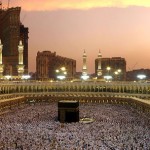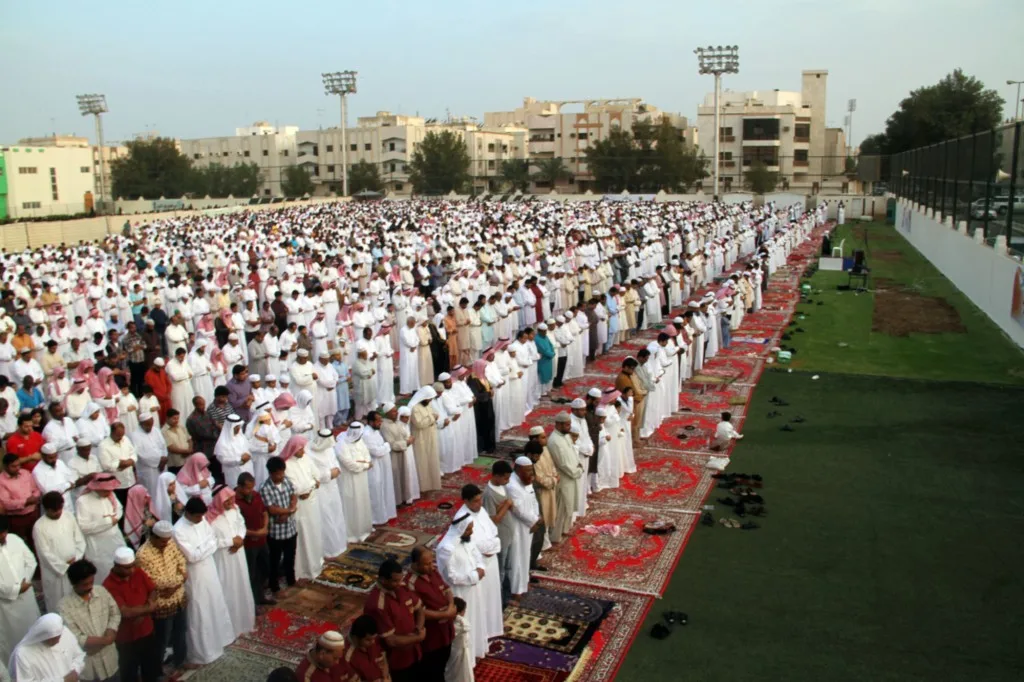 Ibn `Abbâs relates that Allah’s Messenger (peace be upon him) asked a woman from Madinah: “What prevented you from embarking on the Hajj pilgrimage with us?”
Ibn `Abbâs relates that Allah’s Messenger (peace be upon him) asked a woman from Madinah: “What prevented you from embarking on the Hajj pilgrimage with us?”
She replied: “We had two camels. My husband and child took one and left the other for the rest of us to ride on.”
The Prophet (peace be upon him) then told her: “When the month or Ramadan arrives, go for ‘umrah, because `umrah in Ramadan is like accompanying me on Hajj.” [Sahîh al-Bukhârî (1764)]
The meaning of this hadith
What a great achievement it would be for one of us to accompany Allah’s Messenger (peace be upon him) on Hajj! Think of standing beside him on the Plain of `Arafah. Imagine spending the night in his encampment in Muzdalifah and then getting up the next morning to go with him to Minâ. What would it be like to perform tawâf and sa`y alongside him.
The apparent meaning of the hadîth is that our performing `umrah in Ramadan is really that significant.
The ruling for `umrah in general & for `umrah in Ramadan
We must understand that going for `umrah in Ramadan is Sunnah. It is not an obligation and should not be treated as one.
Indeed, the majority of scholars hold the opinion that performing `umrah in one’s lifetime is not a religious obligation at all. This is the view of the Hanafî and Mâlikî schools of though. It is also one of the views expressed by Ahmad b. Hanbal. Al-Shâfî also one time held this view, and it seems to have been his older opinion, The official position of the Shâfi`î school of law is that `umrah is obligatory upon a Muslim, just like Hajj, once in a lifetime.
The stronger of the two opinions – and Allah knows best – is that `umrah is not an obligation. The Qur’ân clearly mentions the obligation of the Hajj without once indicating anything similar for `umrah.
The Prophet (peace be upon him) further emphasized this by saying: “O people! Allah has enjoined the Hajj upon you, so go for Hajj.” [Sahîh Muslim (1337)]
And by saying: “Islam is built upon five things: the testimony that there is no God but Allah and that Muhammad is His servant and Messenger, the establishment of prayer, the payment of Zakâh, the pilgrimage to the House, and the fast during the month of Ramadan.” [Sahîh al-Bukhârî (8) and Sahîh Muslim (16)]
We also have where a man from central Arabia with disheveled hair approached the Prophet (peace be upon him) and asked him about Islam. The Prophet (peace be upon him) said to him: “There are five prayers to be offered in the day and the night.”
The man asked: “Do I have to offer any others?”
The Prophet (peace be upon him) replied: “No, unless you do so voluntarily.” Then he continued: “You must fast the month of Ramadan.”
The man asked: “Do I have to offer any other fasts?”
The Prophet (peace be upon him) replied: “No, unless you do so voluntarily.”
Then the Prophet (peace be upon him) informed him about Zakâh, and he asked: “Do I have to pay anything else?”
The Prophet (peace be upon him) replied: “No, unless you do so voluntarily.”
The man then turned away saying: “By Allah, I will do nothing extra for these things nor do any less than I have to.”
At this, Allah’s Messenger (peace be upon him) remarked: “He will attain success if he proves truthful.” [Sâhîh al-Bukhârî (46) and Sâhîh Muslim (11)]
As for specific hadîth on the topic of the ruling of `umrah, there are some which indicate that it is obligatory and others that indicate it is not obligatory. However, all of these hadîth have some weakness that can be levied against them.
Therefore, we say on the strength of the general evidence that `umrah is a Sunnah. It is not an obligation.
Some practical considerations
It should make us truly happy to see how many Muslims converge on Mecca every year in Ramadan to perform `umrah. However, there are a few matters that we need to consider, so that the best possible effects of observing this Sunnah can be realized.
Some people neglect their families to go on `umrah in Ramadan. This is a serious problem, because the blessed month of Ramadan is a time for people to show greater concern for their families. It is especially bad for parents to neglect their children during this month.
Unfortunately this is exactly what a lot of parents do. They leave their children behind – because those children are in school – and abandon them for at least half of Ramadan. The children spend these precious days without anyone to look after them and guide them. Younger children miss out on essential aspects of their upbringing. Older children may even fall into sin.
There is another mistake parents make regarding their children. Some parents take their children along with them to Mecca. Then, the father decides to spend his time in seclusion at the Sacred Mosque, leaving his children to languish in the hotel.
This is a serious concern. Children who are left to their own devices in a strange environment can easily get into trouble. How often we see adolescents and young adults behaving badly in Mecca during this sacred month, since they see the whole thing as a festive holiday. They act as they please while their parents spend their time in worship – but neglect their parental responsibilities.
It is, without doubt, a good thing for parents to take their children to Mecca. It can be a wonderful, faith-inspiring experience. However, this requires from the parents to be responsible and conscious of their duties to their children. Parents who are unable to manage their children should either stay in their homes and spend a fulfilling Ramadan with their families, or if they go to Mecca, make sure to do everything as a family and leave out i`tikâf.
What is the point of parents seeking extra reward from their personal devotions while incurring sin due to their neglect of those whom Allah has made them responsible for? Muhammad.com



